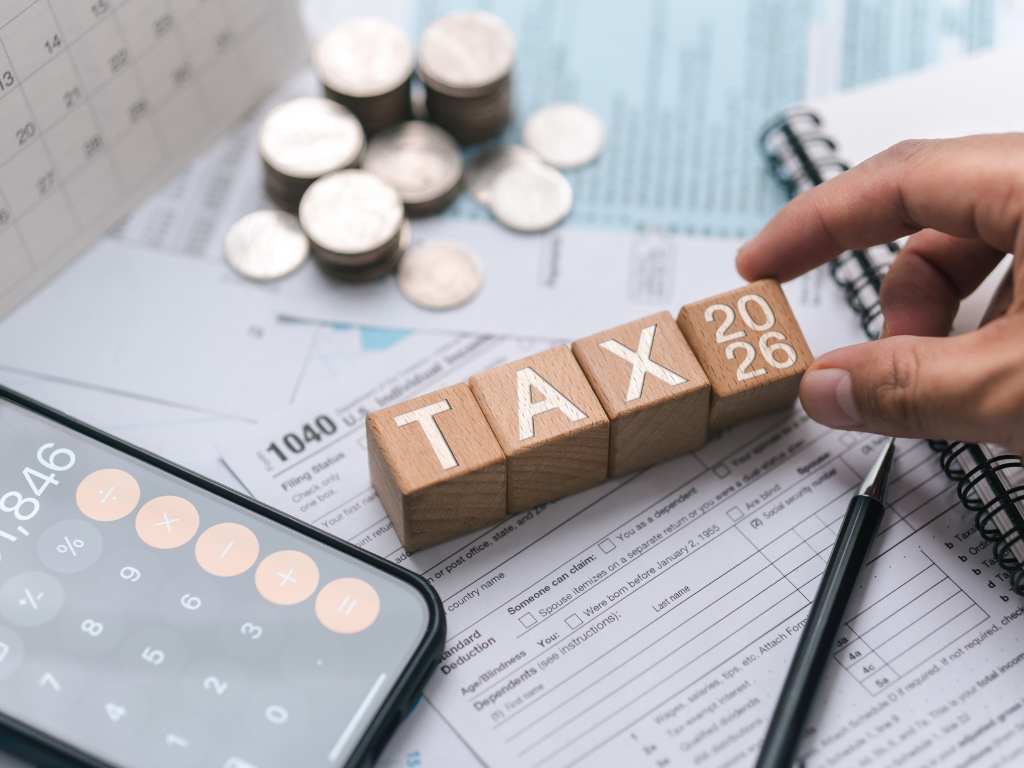Effective compliance in Singapore hinges on the meticulous execution of several core accounting functions, each with its own set of rules, deadlines, and potential pitfalls.
Monthly bookkeeping, reconciliations, and management reports
Accurate and timely monthly bookkeeping forms the basis of all subsequent compliance activities. It involves the systematic recording of all financial transactions, regular bank and ledger reconciliations, and the preparation of management reports. This foundational work ensures that financial statements are reliable, providing the necessary data for tax computations, statutory reporting, and crucial business decision-making.
Engaging an outsourced accounting partner ensures that record-keeping is handled meticulously by professionals, reducing the risk of errors that could lead to penalties, audit issues, or misinformed strategic choices.
Corporate Income Tax (CIT) filing: Forms C-S, C-S Lite, and C
All companies incorporated in Singapore are legally required to file an annual Corporate Income Tax Return with IRAS. The specific form required depends on the company’s revenue:
- Form C-S / C-S Lite: These simplified forms are available for companies incorporated in Singapore with an annual sales of SGD 200,000 or below (form C-S Lite) or those with annual sales of SGD 5 million or below (form C-S).
- A key advantage is that these forms do not require the submission of detailed financial statements and tax computations, significantly reducing the filing burden for smaller entities.
- Form C: This comprehensive form is required for all other companies (i.e., those with annual sales above SGD 5 million). It mandates the submission of detailed financial statements and tax computations.
Source: https://www.iras.gov.sg/taxes/corporate-income-tax/form-c-s-form-c-s-(lite)-form-c-filing/overview-of-form-c-s-form-c-s-(lite)-form-c
The Corporate Income Tax Return for Year of Assessment (YA) 2025 is due by 30 November 2025, regardless of the company’s financial year end (FYE). This consistent deadline provides companies with at least 11 months from their FYE to prepare and file.
For new companies, if their first set of financial statements covers a period exceeding 12 months from the date of incorporation, the income must be attributed and reported across two YAs, as the basis period for each YA should not exceed 12 months. After reviewing the submitted tax returns, IRAS typically issues a Notice of Assessment (NOA) by 31 May of the following year. The corporate tax payment is then due within 30 days from the date of the NOA.
The corporate tax in Singapore is 17 %. New companies get tax rate rebates.
Estimated Chargeable Income (ECI) submission and waiver conditions
The ECI is an estimated statement of a company’s taxable profit for a specific financial year. It serves as an advance notification to IRAS regarding the company’s anticipated tax liability, aiding in tax planning and revenue forecasting for the government.
ECI filing is a mandatory requirement for all Singapore-registered companies, unless they explicitly qualify for and meet specific waiver conditions. Companies are required to file their ECI within three months (or 90 days) from the end of their financial year (FY).
Companies can qualify for an ECI filing waiver if they meet both of the following conditions:
- Their annual revenue for the financial year is S$5 million or less.
- Their ECI is NIL for the relevant Year of Assessment (YA), calculated before deducting any exempt amounts under partial tax exemption schemes or tax exemption schemes for new startup companies.
It is important to note that companies must self-assess their eligibility for this waiver and are not required to seek confirmation from or inform IRAS if they qualify.
A significant incentive for early ECI filing is the availability of instalment payment options. Companies that file their ECI within the first month of their FYE can qualify for up to 10 instalment payments for electronic filings (or 5 for paper filings). This number decreases for later filings (e.g., 8 instalments for filing in the second month, 6 for the third month).
Failure to file ECI on time may result in IRAS issuing an estimated NOA, disallowing instalment payments. This demonstrates how the regulatory framework directly rewards proactive compliance with tangible financial benefits. When we at Prism support our clients with accounting we pride ourselves on providing proactive support such as these filings.
Goods and Services Tax (GST) Compliance: registration, current rates, and return filings
A critical update for businesses is the increase in Singapore’s Goods and Services Tax (GST) rate from 8% to 9%, effective from 1 January 2024. GST-registered businesses are required to charge 9% GST on all standard-rated supplies of goods or services made on or after this date.
Businesses are compulsorily required to register for GST if their taxable turnover exceeds S$1 million under either of two views:
- Retrospective view: If the taxable turnover at the end of a calendar year (e.g., 1 Jan to 31 Dec) exceeds S$1 million, the business must apply for GST registration by 30 January of the following year, with the registration becoming effective on 1 March.
- Prospective view: At any point in time, if a business can reasonably expect its taxable turnover to exceed S$1 million in the next 12 months, it must apply for GST registration within 30 days after the date of its forecast. For liabilities arising on or after 1 July 2025, the effective date of registration will be two months from the date of forecast, though the application must still be within 30 days. To substantiate a forecast under the prospective view, businesses must have supporting documentation such as signed contracts, accepted quotations, confirmed purchase orders, invoices with fixed monthly fees, or income statements demonstrating an increasing turnover trend towards the threshold.
Once registered, GST-registered businesses must submit their GST returns to IRAS within one month from the end of each prescribed accounting period, which is typically on a quarterly basis.
If a company has annual local sales <10% of their total sales, the company can apply GST exemption.
Late registration carries severe consequences, including backdated registration to the date the business should have registered, the requirement to account for and pay GST on past sales (even if GST was not collected from customers), fines of up to S$10,000 plus a penalty equal to 10% of the GST due for late notification, and potential prosecution action.
However, voluntary disclosure of late registration when submitting the application can generally lead to a waiver of the late notification fine and penalties. The continuous evolution of regulations, as exemplified by the updated effective date for prospective GST registration from July 2025, underscores the need for businesses to remain highly adaptive and informed.
Annual Return (AR) and XBRL financial statement submission to ACRA
All companies incorporated in Singapore are legally mandated to file an Annual Return (AR) with ACRA each year, regardless of their operational status (active, dormant, or no revenue).
Private companies are required to file their Annual Return within 7 months after their Financial Year End (FYE). Public companies have a shorter deadline, needing to file within 5 months after their FYE.
Most companies are required to submit their financial statements in XBRL (eXtensible Business Reporting Language) format. This typically involves using ACRA’s BizFinx preparation tool to ensure compliance with the required templates. Exempt Private Companies or Dormant Companies that meet specific criteria may be exempt from XBRL and can submit financial statements in PDF format only.
Generally, an Annual General Meeting (AGM) must be held within 6 months of the company’s financial year end, and it must precede the filing of the Annual Return. Private companies can be exempt from holding an AGM under specific conditions, such as all members passing a resolution to dispense with AGMs, financial statements being sent to all shareholders within 5 months after FYE without any shareholder requesting an AGM, or if the company qualifies as a private dormant relevant company exempt from preparing financial statements. Public companies, however, are always required to hold AGMs.
ACRA imposes late lodgement fees for delayed Annual Returns. Companies can apply for a 60-day extension from ACRA for filing their Annual Return. It is recommended to submit this application via BizFile+ at least 14 working days before the original deadline, as processing takes time. The sequential nature of corporate governance, where the AGM (or its dispensation) must precede the AR filing, highlights the interconnectedness of various compliance obligations.
Payroll Management: CPF contributions, Skills Development Levy (SDL), and Auto-Inclusion Scheme (AIS)
Singapore’s Central Provident Fund (CPF) is a compulsory social security savings scheme. Employers and employees are required to make monthly contributions for Singapore Citizens and Permanent Residents. The contribution rates, effective from 1 January 2025, vary based on the employee’s age group, wage level, and Permanent Resident (PR) status (for SPRs, rates differ in their first and second years of PR status compared to the third year onwards).
Key Rates for 2025 (for monthly wages > S$750, Singapore Citizens/SPRs from 3rd year onwards):
- 55 and below: Employer 17%, Employee 20% (Total 37%)
- Above 55 to 60: Employer 15.5%, Employee 17% (Total 32.5%)
- Above 60 to 65: Employer 12%, Employee 11.5% (Total 23.5%)
- Above 65 to 70: Employer 9%, Employee 7.5% (Total 16.5%)
- Above 70: Employer 7.5%, Employee 5% (Total 12.5%) [18, 19]
As of 1 January 2025, the CPF monthly salary ceiling is set at S$7,400, meaning CPF contributions are calculated only on the first S7,400 of an employee′s monthly wages. The annual salary ceiling for CPF contributions remains at S102,000. It is important for employers to note that CPF contribution rates for employees aged 55-60 and 60-65 are scheduled to increase further from 1 January 2026, reflecting ongoing adjustments to strengthen retirement adequacy.
In addition to CPF, employers are required to pay a compulsory Skills Development Levy (SDL) for all employees working in Singapore, including foreign employees.
A significant update for employers is the Auto-Inclusion Scheme (AIS) for Employment Income. From Year of Assessment (YA) 2025, participation in AIS for e-submission of employment income is compulsory for employers with 5 or more employees (including full-time, part-time, non-resident employees, and directors). It is also mandatory for employers who have received a specific “Notice to File Employment Income” from IRAS. Once an employer is compelled to join AIS, participation remains compulsory even if the employee count falls below 5 in subsequent years.
AIS simplifies the tax filing process for employees, as employers submit employment income information directly to IRAS electronically, eliminating the need to distribute hardcopy IR8A forms (and other appendices) to their employees. The mandatory nature of AIS for a broader group of employers elevates payroll from a mere administrative task to a critical compliance function, requiring precision and adherence to changing regulations.
Outsource accounting to Prism
We can assist you with ongoing bookkeeping as well as advisory. Please reach out to us to schedule a call.




